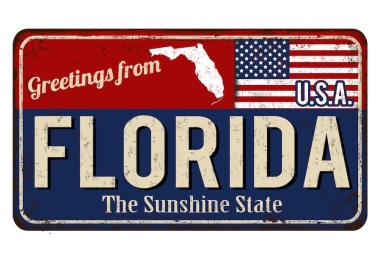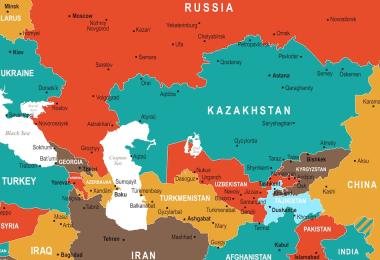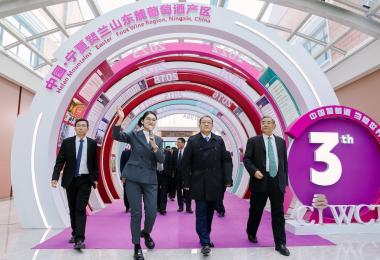An expanding universe of experts and enterprises are lighting up Hong Kong’s stellar wine scene. This Who’s Who is compiled using material from the Guide to the Hong Kong Wine Trade, edited by Debra Meiburg MW, as well research from a number of sources, including the Hong Kong Trade Development Council, the International Wine and Spirit Research, and consultation with opinion leaders and those working in the market.
Educators
The near-universal adoption of wine culture has given rise to huge demand for specialist courses. China became WSET’s largest growth market last academic year after a 38% increase in candidate numbers. In response, WSET established an international office in Hong Kong – its first outside the UK – at the end of 2016. With around 30 Hong Kong-based wine schools at last count, the Asia Wine Service and Education Centre has dominated the education scene for two decades. A new entrant is the MWM Wine School, by Debra Meiburg MW, which opened in May.
Sommeliers
As to be expected in this highly multicultural city, sommeliers come from a wide range of home countries. Hoteliers inevitably favour sommeliers with a French accent, but there are many Hong Kong-born sommeliers who have excellent reputations, such as award-winning rising star Wallace Lo, 2016 Best Sommelier in Greater China Reeze Choi, Derek Li, Alan Liu, and Danny Ng. Most top sommeliers begin their careers in five-star hotels, but once they achieve success, inevitably decamp to corporate offices where they use their considerable skills to groom, inspire, and train the next generation and embark on their Master Sommelier studies.
Two of Hong Kong’s most accomplished sommeliers are Yang Lu and Yvonne Cheung. Lu is corporate director of wine for Shangri-La Hotels and Resorts, and Cheung is director of wine for Swire Hotels and Restaurants. Others include Hong Kong Jockey Club’s Darius Allyn MS and Yohann Jousselin MS from Shangri-La Hotels and Resorts. Grand Hyatt’s Julien Peros, ZUMA’s Juwan Kim, and 8 1/2 Otto e Mezzo Bombana’s Marino Braccu are gifted sommeliers. Hong Kong’s restaurant groups are also home to influential sommeliers Maurizio Severgnini (Dining Concepts) and Bojan Radulovic (Maximal Concepts).
Wine Bars
After years of waiting, wine bars are proliferating, undeterred by Hong Kong’s astronomical rents. Bars like La Vin (formerly Tastings), which serves a carefully curated list of wines by the glass using Enomatic machines, offer special, intimate fine-wine experiences away from the five-star hotels. Sydney transplant 121BC pours Italian artisan wines. La Cabane Wine Bistro specialises in organic, biodynamic French wines, many sourced from independent family-run vineyards. French is also the flavour at Le Quinze Vins, which stocks lesser-known independent producers.
Auction Houses
Hong Kong is one of the biggest wine auction markets in the world. Enthusiastic Asian investors have kept Hong Kong’s auction scene healthy since 2009, with sales amounting to $92m in 2016, according to Wine Spectator. High-value, investment-grade wines – coveted by collectors – are usually sold through auctions organised by Acker Merrall & Condit, Sotheby’s, Christie’s, and Zachys. Acker Merrall & Condit led the market in the first six months of 2017, with its Hong Kong auctions delivering $17.8m. Bonhams is another major player, especially in the luxury spirits space. Start-ups iDealwine and BidVino (a partnership between distributor Links Concept and a group of collectors) are making online auctions accessible to Hongkongers who buy to consume, not necessarily to collect.
Importers
In 2016, imports of wine amounted to HK$12bn ($1.5bn), or 62.9m L, up almost 12% on 2015, and more than seven times the value of 2007’s pre-deregulation figure of HK$1.6bn. Not surprisingly, this commercial honeypot, combined with few barriers to entry, has attracted a lot of local and international interest. There are no fewer than 350 importers in Hong Kong, making it difficult to pinpoint who’s the most influential.
Unlike most other parts of the world, where business functions are separate, in Hong Kong, retailer, importer, and wholesaler are usually different hats on the head of the same company (or person). Most importers have hefty direct-to-consumer business, bypassing the need to invest in the financial sinkhole of a brick and mortar shop. Those who trade in fine wine usually settle for recasting 38th-floor offices in industrial buildings as ‘showrooms’.
ASC Fine Wines, headquartered in Shanghai, has more than 40 employees in Hong Kong; family-owned Telford International employs 250; Jebsen Fine Wines has 30 sales and marketing staff supported by 40 admins; Kerry Wines has a staff of 30 in its Hong Kong office; and Summergate Fine Wines & Spirits services trade and wholesale clients in Hong Kong and Macau. Links Concept, founded by the late, influential, and universally mourned Patricio Cristian de la Fuente Saez, imports and distributes mainly family-owned wines throughout Greater China. Boutique wholesale wine merchant Altaya Wines sells its international wine portfolio to private and trade customers. Burgundy specialist L’Imperatrice benefits from Hong Kong’s French obsession. East Meets West Fine Wines represents 70 wineries from 12 countries. And these are just the big guns; there are 200-plus smaller firms that fight well above their weight.
While Hong Kong’s import figures are strong, it’s worth noting that about 43% of imported wines were re-exported, mostly to China and Macau. While still significant, this figure pales in comparison to the re-export rates (80%) seen between 2008 and 2012.
Retailers
According to Euromonitor International, wine sales in Hong Kong amounted to $541m (14.9m L) in 2015, already overtaking the IWSR’s 2012 growth estimate of $535.1m by 2017. Supermarkets, specialty stores, and convenience stores account for approximately 46% of total wine sales in value terms and 64% in volume terms. Watson’s Wine Cellars, part of the A.S. Watson Group, owned by Hutchison Whampoa, is one of the giants. The group has 30 Hong Kong outlets (with two in Macau) and a website serviced by a team of skilled wine buyers. Popular UK retailer Marks & Spencer is another, with more than 20 outlets in Hong Kong and Macau. Hong Kong’s suburban New Territories is home to Wai Shing Wine & Spirits’ 15 stores. Ponti, which comprises five beverage subsidiaries across retail (Ponti Wine Cellars, Brix), wholesale (Nathan Fine Wines, Ponti Trading), and corporate-VIP sales (Ponti Grand Cru) is a jack of all retail channels. Rare & Fine Wines (a subsidiary of Altaya Wines) and Japan’s Bordeaux-specialist Enoteca also do well here thanks to the city’s Bordeaux obsession. Merchants like Ginsberg+Chan and various independents add further depth to Hong Kong’s robust retail market.
Ecommerce
Ecommerce is not as important in Hong Kong as it is on the mainland. Regular drinkers do shop online, but the proportion (8%) is not huge. Across the border is a different story – Taobao, Tmall, JD.com, yhd.com, wangjiu.com, Amazon, and YesMyWine (which also operates in Hong Kong) all have strong sales in China.
Hong Kong’s most prominent online platforms are those with roots or partnerships overseas. Cru World Wine benefits from the buying power of its global network for sourcing and allocations, according to Sabrina Hosford, head of retail sales and marketing. Other dedicated online stores include Cellarmaster Wines, Laithwaite’s Direct Wines, and Wine’n’Things.
Sales are one thing, but trading is another. Online platform Liv-ex facilitates robust B2B trading in Hong Kong, and BBX (Berrys’ Broking Exchange) facilitates trading between the trade and collectors in Hong Kong and around the world.
Storage
Formerly a challenge in Hong Kong – but a necessity in our climate – professional wine storage has burgeoned in the last decade. Collectors who like to keep a few cases on hand, instead of locked away in cellars in London and New York, utilise facilities at Crown Wine Cellars, Hong Kong Wine Vault, Hip Cellar, Watson’s Wine Storage, or 13 Degrees.
Media
Wine is an aspirational pursuit in Hong Kong and the proliferation of dedicated wine lifestyle publications fuel that fire. Major UK magazine Decanter, popular with consumers, traders, and producers, is circulated throughout Greater China and supplemented by DecanterChina.com, which attracts 14,000 users per month. Connoisseurs and enthusiasts look to Cru Magazine (circulation 20,000) as an authority on wine. Spirito diVino Asia is a glossy bi-monthly that features luxury-style wine articles. Bilingual magazine Wine.Luxe also drives wine and drinks culture in Hong Kong. Long-time critic and writer Ronny Lau has both Chinese and English fans. Most influential in the trade media is The Drinks Business Hong Kong, a monthly magazine and website run by educator and industry figure Ivy Ng.
PR, Marketing, & Events
Whether wine sales are up or down, wine events continue to be big business in Hong Kong, everyone is getting in on the game. Events, marketing, and PR firms place particular emphasis on posh-event organisation rather than targeted media outreach, though most do both. Some importers have full-time in-house event organisers, with Ponti organising as many as 50 consumer events per year. Watson’s arranged 20 trade events and rolled out the red carpet for 140 consumer events in 2016.
Large luxury groups tend to use international PR conglomerates to handle their accounts globally. Meiburg Wine Media is a prominent local player, hosting more than 200 events per year throughout Asia. Other major food and drink PR agencies are SOPEXA and GHC Asia, which is focused on the food and beverage, and hospitality sectors. Solo promoter Tersina Shieh and boutique start-ups also help drive and guide Hong Kong’s thriving wine culture.
Most Influential
In a market where many drinkers are first generation (second at most), the powerful influencers are people who are advancing Asia’s wine culture from the ground up. Publisher of the Guide to the Hong Kong Wine Trade (on which this report is based), Debra Meiburg MW co-founded the Cathay Pacific Hong Kong International Wine & Spirit Competition (along with the Hong Kong Trade Development Council) and runs influential wine PR, marketing, and events company Meiburg Wine Media. She also recently established the MWM Wine School.
Award-winning author, television host, editor, wine critic, judge, and Professor of Wine Jeannie Cho Lee MW helped launch the Master of Science in International Wine Management at the Hong Kong Polytechnic University’s School of Hotel and Tourism Management. Winemaker and TV personality Eddie McDougall is changing the way Hongkongers view ‘Made in Asia’ wines. Chairman of the Hong Kong Sommelier Association Nelson Chow, who has been affiliated with the Wine & Dine Festival and runs the Vocational Training Council of Hong Kong’s Western Catering and Wine programme, still has considerable influence, as does veteran local food and wine critic Lau Chi-sun. Though only a part-time resident, James Suckling has made his mark in Hong Kong with his grand, extravagantly aspirational tastings.
Shenée Tuck is an employee of Meiburg Wine Media








